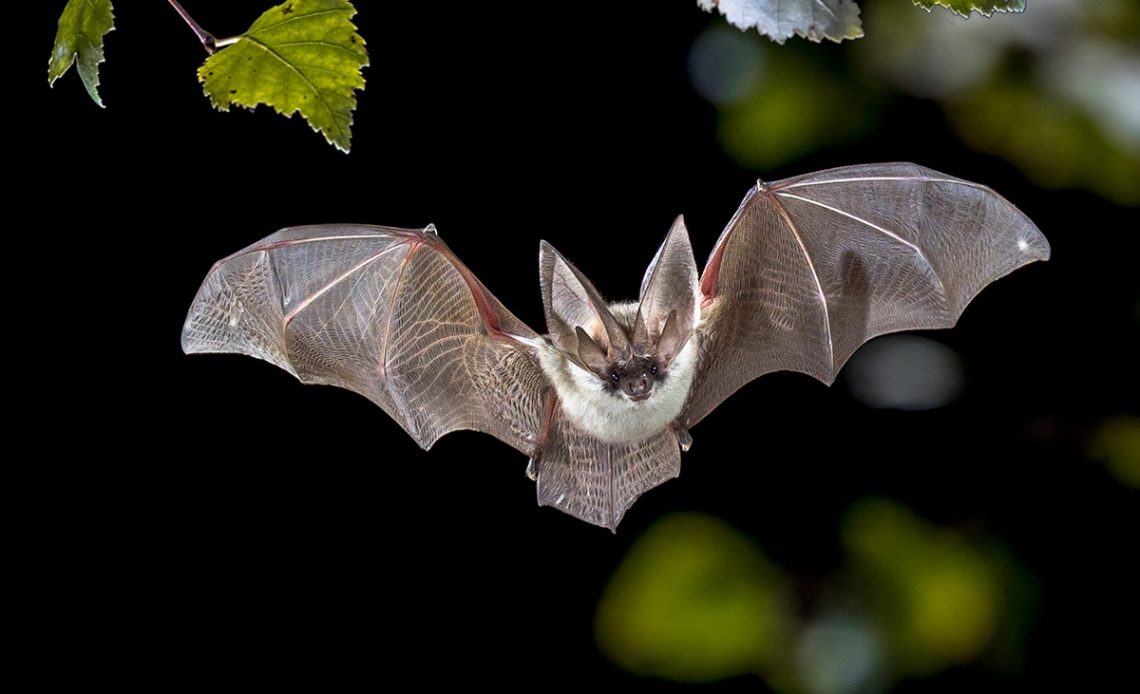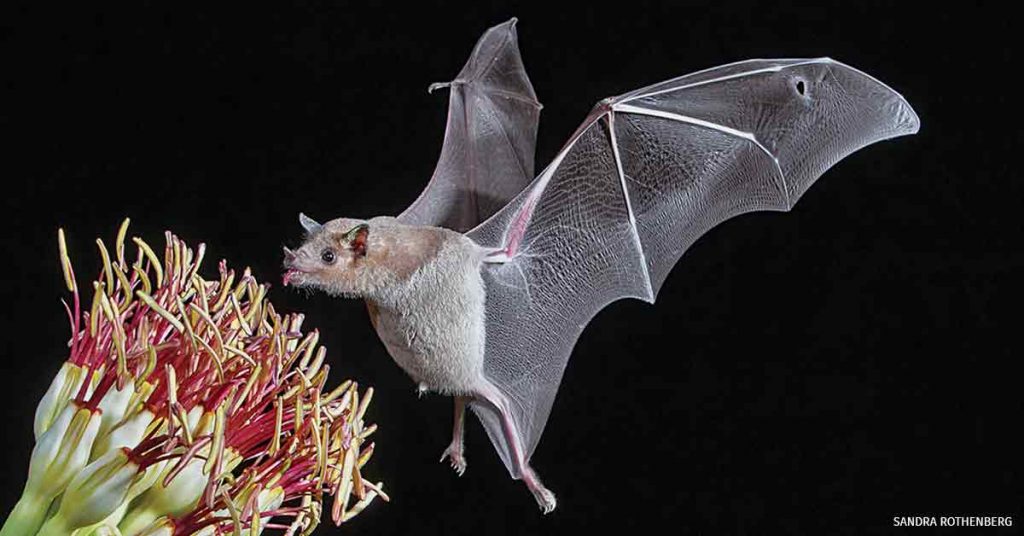

We’re here to help! Wild Yards is a completely free website that is 100% dedicated to helping you create a wildlife-friendly, sustainable yard. Read more
WildYards is reader-supported. When you buy a product through a link on our site, we may earn a comission. Every product is independently selected by our (obsessive) editors and our reviews are unbiased and objective. Read more about our mission or our privacy policy.
Most of us have a fear of bats.
Their small, furry faces and long pointy teeth make them seem like creatures in a horror movie. However, they are very misunderstood, and there is no reason to fear these flying mammals as much as you may think.
In fact, not only do bats play an important role in nature, but they can also provide numerous benefits for your home and yard! So before you call your local pest control or start eating extra garlic, check out these benefits of bats in your backyard and you might end up setting up a bat house kit to attract even more bats!
1. They can be used to monitor air quality & even improve it
Bats are sensitive to air quality and can be used as a warning system for environmental changes. They have to produce higher rates of sonar when it is more polluted, which will help scientists track the levels of certain chemicals in the environment.
Don’t worry, bats also have a direct benefit to you.
Bats eat pollen-carrying insects which drastically decreases the amount of pollen in the air. This is great news for those of you with seasonal allergies or allergy-induced asthma.
2. They are natural pest control for your garden
Bats may not be the cuddliest of animals but they sure do make life better for us humans.
Not only do they eat pollen-carrying insects but they also help control mosquito populations (which means less annoying bites!) Scientists have discovered that bats can eat as many as 4,000 bugs each night! Which is kind of crazy. Attract a few bats to your backyard and you’ll have much more enjoyable summer nights.
Bats deserve our praise for their ability to keep pests at bay and protect us from getting bitten by those trauma-inducing mosquitoes.
3. Bat droppings provide a rich fertilizer for plants
This may be one of the weirdest benefits of bats.
The natural world has a fascinating balance of life. Bats are quite useful to humans and animals alike even if they are nocturnal creatures. Bat droppings provide an excellent fertilizer for plants and trees because it contains nitrogen, phosphorus, potassium and other nutrients which promote healthy plant growth as well as decomposition of fallen leaves from said plants.
4. Bats help pollinate plans

You may think of bees when you think of pollinators. However, for many plants, bat pollination is a crucial part of their life cycle. The bats that are attracted to the flowers use echolocation to find them in dark environments. They also take nectar and pollen from the plant’s erect stamens or pistils which help keep the plant healthy and happy. Bats often feed on insects that come to feast on these plants as well!
5. Bats are entertaining to watch at night
Lastly, bats are one of the most entertaining animals to watch at night.
They emit a high-pitched sound through their mouth, which is then picked up by their ears and processed into an internal map of the surroundings. This allows them to navigate in complete darkness with perfect accuracy.
They can dive and catch insects at a speed that is quite entertaining.
Benefits of Bats Summary
If these five benefits of attracting bats to your backyard hasn’t convinced you buy the best bat kit on the market and start making your backyard a bat paradise then I’m not sure anything will.
A quick summary of bat benefits:
- Bats are amazing at pollination
- Bats eat up to 4,000 bugs a day
- Bat droppings turn into great fertilizer
- They’re very entertaining to watch
- They can improve air quality in your backyard
Not really a bat person but still want these benefits? Don’t worry, hummingbirds share many of the same pest-controlling and pollinating benefits as bats without the spookiness. Checkout our guide on attracting hummingbirds to your backyard.
